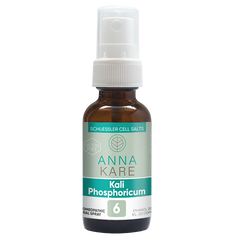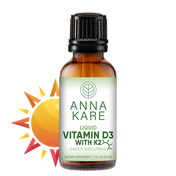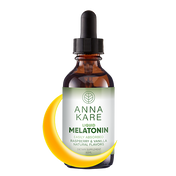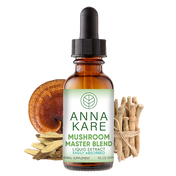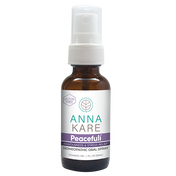Being a teenager comes with more challenges than many parents may realize or remember. At this stage in life, your child is likely feeling self-conscious as they go through bodily changes, they may feel stressed about how the world sees them, both of which can lead to a debilitating state of worry.
These internal fears, along with external influences from social media, global issues, and the obstacles of school life and work, are gateways to an anxious lifestyle for many teens.
Anxiety is a serious matter that many teenagers need help with in order to avoid a significant impact on their livelihood, even if they’re afraid to ask for help.
Fortunately, we’ve got some natural ways to reduce anxiety in teenagers. It is our hope that together with your support and our tips, we can help them get back to a less anxiety-consuming period in their lives.
Read on to discover ways you can help your child navigate their path into adulthood.
What’s the Difference Between Stress and Anxiety?
While both stress and anxiety can affect teenagers, they aren’t the same experience. Stress typically arises in response to a known, external cause, such as an upcoming exam or a fight with a friend.
On the other hand, anxiety is more general and persistent, often existing without an immediate or identifiable trigger, and it progressively worsens.
When relating to anxiousness in children, teenagers, and adults, homeopathic remedies provide extra support for our nerve cells, helping us decelerate, focus, relax, and feel more in control.
Fortunately, there are some expertly formulated homeopathic remedies that relieve anxiety, including Schuessler salts, which we’ll discuss further on.
|
Natural Remedies for Anxiousness Relief
|
How Can You Tell if Your Teen Is Struggling with Anxiety?
Recognizing anxiety in teenagers may be challenging since the signs vary widely, and many parents mistake them for typical adolescent behavior. However, there are several indicators that your teen is struggling with anxiety.
Visible signs may include persistent restlessness, increased irritability, and difficulty concentrating on tasks or schoolwork. They may also exhibit physical ailments, such as frequent headaches or stomach aches, often without a clear cause.
More subtle signs might manifest as changes in their social behavior, such as withdrawing from friends or activities they once enjoyed or an unexplained drop in academic performance.
Anxiety may also affect their sleep pattern, causing either excessive sleep or insomnia, depending on when they feel the most anxious. Persistent anxiety may also accompany depression, which worsens both feelings.
You should closely observe your teen and consult a mental health professional if anxiety seems to be negatively impacting their daily functioning or relationships.
How You Can Help
One of the most effective ways to help your teenager is by having open, honest, and supportive conversations. Ask them how they’re feeling and what’s going on in their lives, and make sure you use open-ended questions to give them space to go into detail about their feelings.
Don’t hesitate to ask difficult questions, but do so with empathy and without judgment. Encourage them to express their thoughts and emotions freely. Let them know that feeling anxious is something many people experience, and it doesn’t make them any less strong or capable.
Offering them natural remedies may also give them comfort in knowing that you want to help them. Homeopathy helps with alleviating anxiety, and your child may be more comfortable trying out natural solutions rather than prescribed medicine.
Remind them that professional help is always available and is a smart and brave option if they’re struggling with anxiety. Health professionals, including counselors and psychologists, have the tools and expertise to help your teen manage their anxiousness.
As a parent, you need to support and guide your teenager without pushing them, allowing them to take the lead on their mental health journey.
6 Natural Ways to Help Teenagers with Anxiety
Incorporating anxiety-reducing strategies into daily routines can have a profound impact on your teenager’s well-being.
1. Breathing Techniques
Breathing techniques, such as box breathing, calm the mind and body, providing immediate relief during moments of high anxiety.
To calm yourself or a loved one with box breathing, visualize a box in your head. With your finger, draw the outline of the box and focus on a different part of your breathing for each edge of the box.
It should be as follows: Inhale for four seconds, hold for four seconds, exhale for four seconds, hold for four seconds, repeat as necessary.
2. Calm Strips and Earplugs
Calm Strips, which are tactile tools that provide a grounding sensory experience, manage anxiety by engaging the senses. Some even have breathing reminders on them to help your teenager deal with a difficult situation.
We love them because they are residue-free, are reusable, and are designed to help regulate restless energy and promote mindfulness. They feature beautiful designs inspired by calming scenes and experiences, mindfulness, breathing activities, or inspirational words and phrases. Lastly, they are discreet and can be added to binders, phone cases, and more.
Anxiety earplugs can also be beneficial in blocking overstimulating noise and creating a peaceful environment.
3. Limit Screen Time and Caffeine
It may also benefit your child to limit screen time, as excessive exposure to digital devices can exacerbate feelings of anxiety. Encourage your teen to avoid caffeine which stimulates the nervous system and may lead to sleep problems at night and irritability during the day.
4. Offer a Safe Space
Providing a safe and secure home environment is crucial, as it fosters a sense of stability and security that can mitigate anxiety. Knowing there is a safe space to go home to can ease feelings of anxiety and increases comfort and trust.
5. Stay Active and Mindful
Additionally, teens experiencing anxiety should try to stay active. Practicing mindfulness through meditation enhances emotional regulation and fosters a peaceful state of mind.
Team sports, such as hockey, baseball, basketball, and more promote being a part of a community and give your teenager beneficial exercise. Individual activities like yoga also promote physical health and encourage inner tranquility, body acceptance, and focus which can help lower anxiety.
We recognize that athletics may not be for every teen, in this case, we would suggest an artistic venture that allows for them to be mindful and express themselves in a way that is unique to them.
6. Homeopathic Remedies for Anxiousness
As an additional form of help, consider using various remedies from our online store. We have a variety of homeopathic anxiety supplements to help your teenager through the troublesome tides that life can bring to their shores.
Encourage your teen to have (as much as possible) a healthy diet and take Cellergy alongside it. This lactose-free cell salt combination improves electrolyte replenishment and aids in the absorption of vitamins and minerals for improved energy throughout the day.
|
Cellergy
|
Using this remedy is easy. All your teen needs to do is spray it into the mouth three times a day or add several squirts to their water bottle they carry with them at school.
If your teen needs help with staying calm and focused or falling asleep, suggest adding Peacefulí. Peacefulí is a natural oral spray to ease anxiousness. It helps to relax the mind and body by relieving muscle tension and aches, which are common ailments that come with anxiety. This holistic remedy can be used in the morning and half an hour before bed, or have them bring it to school to help handle an anxious moment.
|
Peacefulí
|
Another easy-to-use spray is our cell salt Kali Phos (Kali Phosphoricum), which helps with issues involving the nervous system. If you have a teenager who also struggles with concentration and low mood, this remedy can help them get in a better state of mind.
|
Cell Salt Kali Phos
|
Summary
Anxiety in teenagers is an issue that warrants understanding, compassion, and effective strategies that will help your teen manage their symptoms. Natural remedies offer a gentle way to help ease and relieve symptoms and don’t come with the stigma that prescription medication can often have.
Your role in providing a supportive, non-judgmental environment will foster their mental health journey, while introducing them to homeopathic remedies will provide them with holistic tools and help them feel calmer.
Incorporate these natural ways to reduce anxiety in teenagers into your teen’s daily routine and help them navigate their path to tranquility and strength.
Please note: The content and product descriptions in this article are grounded in traditional homeopathic and natural wellness practices. They have not been evaluated by the Food and Drug Administration.
If you suspect that your teenager's anxiety has become life-threatening or if you are a teen struggling with severe anxiety that makes daily functioning impossible, please talk to your doctor or counselor. Need help now? Find a helpline offers free emotional help anywhere, anytime.






